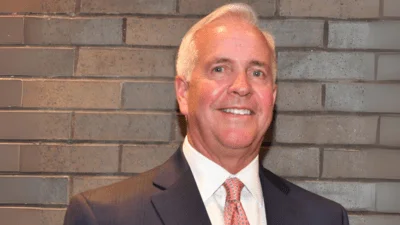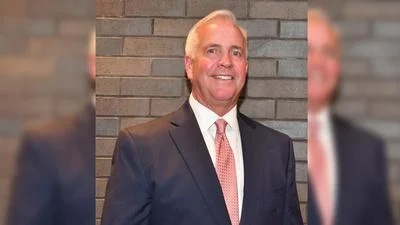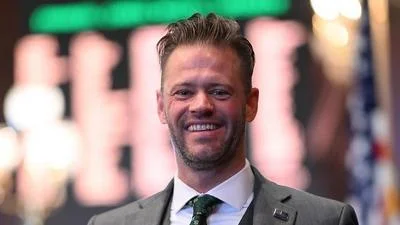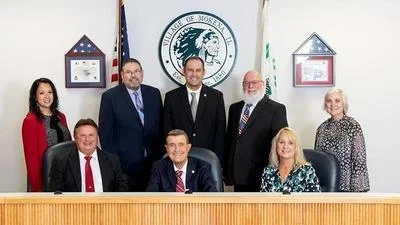Ines Kutlesa, Chief Executive Officer at Guardian Angel Community Services | Linkedin
Ines Kutlesa, Chief Executive Officer at Guardian Angel Community Services | Linkedin
The listed appropriations included grants of $500,000 and $500,000 if two, each designated for programs or services funded by the State of Illinois.
These appropriations represent state-level funding authorized by lawmakers, reflecting what was approved in the budget, not necessarily disbursed. The funds cover only State of Illinois support and exclude federal, local, or other public sources.
Founded in 1897 by Alfred Moes, Guardian Angel Community Services states that its mission is: “Our mission is to provide diverse services that inspire people to improve the quality of their lives in their greatest time of need.”
You can learn more about the organization at its website.
In its most recent IRS Form 990 filing filing for tax year 2024, the organization reported $7,384,860 in total revenue. Of that, $4,374,340 came from government grants including federal, state, or local sources, making up 59.2% of total revenue.
The nonprofit listed $5,017,850 in contributions overall. It also reported $129,348 in non-cash contributions, such as donated goods or services, and $430,227 categorized under other contributions, which may include restricted donations, pledges, or bequests.
At the beginning of 2024, Guardian Angel Community Services had $5,474,720 in assets. By the end of 2024, that figure had changed to $7,280,260, indicating a significant 33% growth in overall holdings.
According to its filing, public funding to Guardian Angel Community Services increased in the last year. The group received $4,092,630 in government grants in 2023, compared to $4,374,340 in 2024—an increase of 6.9% year-over-year.
However, a Chicago City Wire analysis found that IRS filings frequently contain discrepancies when compared with publicly disclosed government grant reports and budgets.
Guardian Angel Community Services is one of hundreds of nonprofits across Illinois that receive substantial support from state taxpayers while also fundraising privately.
In 2025, Illinois lawmakers introduced House Bill 1266, also known as the Department of Government Efficiency (DOGE) Act. The proposal would create a new oversight body within the Office of the Auditor General tasked with identifying cost-saving measures, reviewing agency performance, and advising on audit priorities. If passed, DOGE could bring additional scrutiny and performance evaluation to taxpayer-funded organizations.
According to ProPublica, Illinois has more than 78,000 active tax-exempt organizations, including nearly 60,000 classified as charitable nonprofits. In their most recent IRS filings, these groups reported a combined revenue exceeding $156 billion.
| Fiscal Year | Total Grants/Contracts | Total Taxpayer $$ |
|---|---|---|
| 2024 | 2 | $1,000,000 |
| Term | Name | Title |
|---|---|---|
| 2024-2024 | Adam C Underhill | Board Member |
| 2024-2024 | Ann Caneva | Treasurer |
| 2024-2024 | Cindy Fiocca | Board Member |
| 2024-2024 | Dan Kuska | Immed. Past Chair |
| 2024-2024 | Demetris E Anderson | Board Member |
| 2024-2024 | Elizabeth S Delrose | Secretary |
| 2024-2024 | Heather Jourdan | Vice-Chair |
| 2024-2024 | Ines Lajla Kutlesa | Chief Executive Officer |
| 2024-2024 | Jack F Daly | Board Member |
| 2024-2024 | James Ruzon | Board Member |
| 2024-2024 | Kathryn Giegerich | Board Member |
| 2024-2024 | Kurt Miller | Chief Financial Officer |
| 2024-2024 | Larry Wiers | Board Member |
| 2024-2024 | Lorraine Guerro | Board Member |
| 2024-2024 | Louis Johnson | Board Member |
| 2024-2024 | Mary Mcgavin | Chief Operating Officer |
| 2024-2024 | Nancy Kuzma | Chair |
| 2024-2024 | Rachael A Bartolini | Board Member |
| 2024-2024 | Sylvia Acosta Chavez | Board Member |
| Year | Name | Title | Compensation |
|---|---|---|---|
| 2015 | Michael D Gutierrez | - | |
| 2014 | Angela C Plunge | - | |
| 2012 | Crystal Seals | Social Work Intern | - |
| 2011 | Devona Jean Marsh | - |






 Alerts Sign-up
Alerts Sign-up